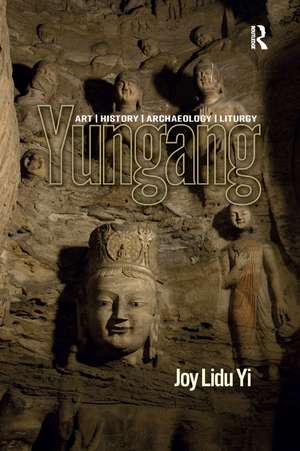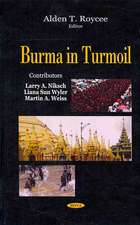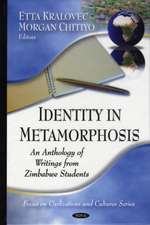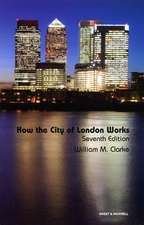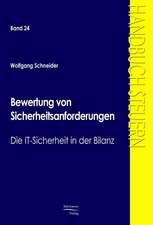Yungang: Art, History, Archaeology, Liturgy
Autor Joy Lidu Yien Limba Engleză Paperback – 30 iun 2020
Recent economic changes in China including the expansion of roads have led to unprecedented numbers of objects being unearthed on site and near the cave-chapels. Archaeological discoveries in 2010 have shed significant new light on the architectural configuration of monasteries in the capital and the functions of different sections of the cave complex, as well as monastic life within it. For the first time, it is possible to reconstruct where the monks lived and translated sacred literary texts, and to fully understand that freestanding monasteries are an important component of the rock-cut cave complex.
Illustrated throughout with remarkable full-colour photographs, this re-examination of the cave-chapels, which brings together previous scholarship, primary documentation, and more than a decade of first-hand field research, will not only fill in the gaps in our knowledge about Yungang, but also raise, and perhaps answer, new questions in art history.
| Toate formatele și edițiile | Preț | Express |
|---|---|---|
| Paperback (1) | 261.95 lei 6-8 săpt. | |
| Taylor & Francis – 30 iun 2020 | 261.95 lei 6-8 săpt. | |
| Hardback (1) | 768.82 lei 6-8 săpt. | |
| Taylor & Francis – 14 noi 2017 | 768.82 lei 6-8 săpt. |
Preț: 261.95 lei
Preț vechi: 312.44 lei
-16% Nou
Puncte Express: 393
Preț estimativ în valută:
50.12€ • 52.33$ • 41.48£
50.12€ • 52.33$ • 41.48£
Carte tipărită la comandă
Livrare economică 04-18 aprilie
Preluare comenzi: 021 569.72.76
Specificații
ISBN-13: 9780367889388
ISBN-10: 0367889382
Pagini: 256
Dimensiuni: 156 x 234 mm
Greutate: 0.55 kg
Ediția:1
Editura: Taylor & Francis
Colecția Routledge
Locul publicării:Oxford, United Kingdom
ISBN-10: 0367889382
Pagini: 256
Dimensiuni: 156 x 234 mm
Greutate: 0.55 kg
Ediția:1
Editura: Taylor & Francis
Colecția Routledge
Locul publicării:Oxford, United Kingdom
Cuprins
Acknowledgements; Chronology of Chinese dynasties; Chapter One Introduction, 1. Chinese antiquarian documentation, 2. Pioneering Japanese expeditions, 3. Chinese scholarship, 4. Western research, 5. Purpose and organization of the book; Chapter Two The sacred site of Yungang, 1. Making the sacred cave temples of Yungang, 2. Auspicious geographical environment of Yungang, 3. Archaeological excavations and related issues, 4. Art and architecture; Chapter Three Phase one - emperor As Tathāgata, 1. The imperial five Tanyao caves, 2. Dates of excavation of the five Tanyao caves, 3. Emperor as the living Tathāgata in the cave temple, 4. Tanyao and the significance of the translation of sacred books in Yungang, 5. Concluding remarks; Chapter Four Phase two: political struggles and chronicles reconsidered, 1. Dates of caves 11-13 reconsidered, 2. Reconstructing a chronological sequence of the second-phase cave temples, 3. Summary of the chronology of the second-phase cave temples; Chapter Five Considering karmic narratives and liturgical functions, 1. Reading the iconography, 2. Modes of narratives and viewers’ response, 3. Ritual and function in a rock-cut cave sanctuary, 4. Folk faith, karmic practice and the Tiwei Boli jing, 5. Concluding remarks; Chapter Six phase three - the remaining splendour, 1. Architectural structure, 2. Iconographic composition, 3. Telling tales: narrative stories and visual representations, 4. Iconographic style, 5. Classification, dating and chronological sequence, 6. Concluding remarks, 7. One final remark: Buddhist sinicization reconsidered; Postscript, Classification of the caves in the third phase; Groups and periodization of the third-phase caves; Character glossary; Selected bibliography; Index
Notă biografică
Professor Joy Lidu Yi is a historian of Chinese art at the College of Communication, Architecture and The Arts at Florida International University. Her current research is focused on Buddhist rock-cut cave art and archaeology in medieval China. She is particularly interested in the issues of art, power, politics, patronage, and liturgy of Buddhist sanctuaries.
Descriere
The first comprehensive analysis of its kind in any western language, this volume provides a social art history of Yungang: a fifth-century rock-cut court cave complex, UNESCO World Heritage site, and one of the greatest Buddhist monuments of all time. Recent archaeological discoveries have shed significant new light on the functions of differen
